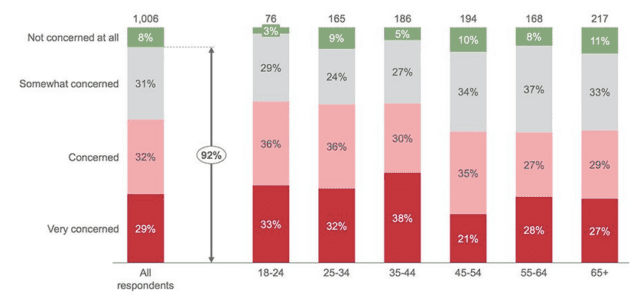Sustainability is not confined to ethical obligations anymore; it has evolved into a strategic business approach that creates enduring value. In an era defined by rapid advancements, shifting consumer expectations, and global environmental challenges, the role of businesses has evolved beyond mere profit-making.
The spotlight has turned toward sustainable practices as a fundamental driver of success and a pathway to a thriving future. As the United Kingdom’s corporate landscape navigates this transformative journey, the adoption of sustainability emerges as not just a choice, but a strategic imperative.
But what are the recent market trends with regard to sustainability? How are market forces shaping the new reality? And why UK companies should adopt sustainability, not solely to make positive contributions to the planet but also to ensure their own long-term prosperity? These are some of the questions driving recent conversations.
The shifting business landscape
First, the business landscape is marked by a change in consumer behaviour. Within the dynamic context of a changing business landscape, an illuminating study conducted by Eden McCallum has unveiled a compelling narrative that businesses cannot afford to overlook. A survey encompassing nearly 1,000 consumers presents an insightful chart that underscores the burgeoning consumer awareness, which holds profound implications for enterprises.
The chart below shows that only a mere 8% of individuals in the UK remain indifferent to the concept of sustainability when shaping their consumption behaviours. This stark statistic is juxtaposed against a staggering 61% who express varying degrees of concern—ranging from concern to utmost concern—about the environmental ramifications of their choices. The shift is not merely conceptual; it’s reflective of a tangible change in behaviour. A significant 68% of UK consumers perceive their personal decisions in energy consumption and insulation as crucial, while 56% ascribe similar importance to their dietary and eating habits. The data encapsulated in these findings is a vivid testament to the shifting ethos of the consumer populace. This awakening consciousness among consumers is an undeniable sign of the evolving business landscape—one where sustainability is no longer an optional addendum, but a decisive factor that can shape the trajectory of success for companies.

Source: Consultancy UK Customer Survey 2021
Moreover, reinforcing this paradigm is recent data from E&Y which underscores the shift with enhanced clarity. An astonishing 84% of respondents indicated the significance of sustainability in determining their purchase choices. What’s even more noteworthy is that 34% of these consumers are actively planning to exclusively patronize sustainable products. Similarly, consumer behaviour is evolving in response to organizations’ environmental and social actions. A substantial 54% of consumers from the survey have already adjusted their buying habits based on a company’s environmental and social initiatives. However, this shift is not merely driven by a general desire for sustainability; consumers are now demanding transparent and tangible evidence of a company’s commitment to sustainability. This demand stems from growing concerns surrounding greenwashing practices, where companies exaggerate or falsely claim their environmental efforts.
Interestingly, the concept of sustainability holds distinct connotations across different generations. For older consumers, sustainability often revolves around environmental conservation. In contrast, younger generations, particularly Generation Z and millennials, encompass a broader spectrum that includes social aspects as well. These findings aren’t mere numbers; they encapsulate an evolving ethos that pulsates within the consumer strata. This awakening, attuned consciousness within the public resonates as an incontrovertible signpost of the reshaping business panorama. It is here that sustainability transcends a mere adjunct, ascending to a decisive determinant that can steer the trajectory of triumph for companies.
The shifting workplace orientation
The days when sustainability was a mere afterthought are long past. Generation Z and millennials are demanding a transformation in how companies approach sustainability. Their values, expectations, and actions are prompting a profound re-evaluation of corporate strategies. A remarkable and unprecedented level of concern for environmental issues is a defining trait of these cohorts, as their passion for addressing climate change has far-reaching implications, extending well beyond their personal lives into the professional sphere. Within the workplace, the voices of Generation Z and millennials are growing louder, advocating for sustainability and social responsibility. For them, the workplace is no longer just a space to earn a pay check; it’s a platform to advocate for positive change. These generations are not content with simply holding these values privately; they are increasingly vocal about their principles and expectations, both within their current roles and beyond. One of the most significant ways in which this generational shift is manifesting is in the expectations they hold for the companies they engage with. As they enter the job market, Generation Z and millennials are casting a discerning eye on potential employers. A recent research survey from Deloitte involving nearly 23,000 respondents unveiled an astonishing trend: 55% of Generation Z and 54% of millennials consider it imperative to research a company’s environmental impact and sustainability policies before even considering a job offer.
The impact of this generational perspective extends beyond research and selection—it’s prompting significant career shifts. A substantial 17% of Generation Z respondents have already taken bold steps to reshape their professional trajectories, opting for roles that closely align with their values. This trend is a powerful demonstration of their conviction; they’re willing to make substantial sacrifices to ensure their careers are not at odds with their principles. Similarly, forward-looking 25% of Generation Z respondents are resolute about making such shifts in the future, while millennials, not far behind in their convictions, are also part of this paradigm shift; with 16% having already navigated career changes, an additional 23% are poised to make similar moves. The shifting workplace orientation is a convergence of generational passion and evolving ideals. The influence of Generation Z and millennials is compelling companies to recalibrate their approaches to sustainability, making it a core tenet of their operations. As these generations continue to amplify their voices, the imperative for businesses to embrace sustainability becomes more resounding, marking an era where conscious choices and responsible actions pave the way for success.
Sustainability strategies for companies
Innovation for change: By creating novel solutions that minimize resource consumption, reduce waste and lower emissions, companies can not only address sustainability challenges but also position themselves as industry pioneers. For instance, the transportation sector is witnessing a shift toward electric and hybrid vehicles, meeting both consumer demand and environmental concerns.
Leverage tech: Leverage the power of technology to drive sustainable transformation. Technologies like artificial intelligence (AI), data analytics, and blockchain offer opportunities to optimize supply chains, track sustainability metrics, and ensure transparency. This technology-driven approach enhances efficiency, enabling informed decisions aligned with sustainability objectives.
Embracing transparency: Transparency serves as the bedrock of fostering trust, accountability, and responsible practices. UK companies are encouraged to communicate their sustainability endeavors through various means, including robust sustainability reporting and publicly accessible policy documents. By openly sharing their efforts and progress, companies signal their commitment to responsible practices and invite stakeholders into their sustainability journey. This transparency offers stakeholders an unobstructed view of the company’s environmental, social, and governance (ESG) metrics, cultivating a relationship based on trust, ethical conduct, and genuine dedication to a more sustainable future.
Collective impact: Tackling complex sustainability challenges necessitates collaboration on a grand scale. UK companies can harness their collective influence by collaborating with a diverse array of stakeholders, including governments, non-governmental organizations (NGOs), local communities, and other businesses. Such collaborations pool resources, knowledge, and expertise, enabling a more comprehensive and impactful approach to addressing shared challenges. By uniting efforts, companies contribute to a broader systemic change that goes beyond individual impact, paving the way for a more sustainable and inclusive future for all.
Conclusion
As the world faces unprecedented challenges related to climate change, resource scarcity, and social inequality, companies are stepping up to the plate by embracing sustainability as a core business principle. What was once considered a choice between profit and responsibility has now become a symbiotic relationship, where sustainability fuels success and success nurtures sustainability. By innovating, collaborating, and prioritizing ethical practices, businesses are not only ensuring their own viability but also contributing to a more sustainable and prosperous future for all. The companies that recognize and act upon this paradigm shift are the ones that will truly unlock the future.
Found it interesting and would like more in the mail?




